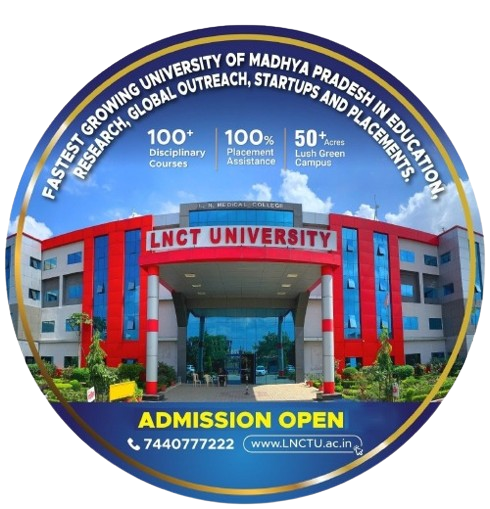Build Smart Cities: Why B.Tech Civil Engineering Sets the Stage for Innovation
Smart cities are no longer just a futuristic concept it is the reality of the modern development of cities that requires proper urban planning. As we move toward sustainable infrastructure, intelligent transportation, and energy-friendly buildings civil engineering has become the need of the hour as smart city projects have huge demands for it.
The Evolution of Civil Engineering in the Smart Era
Previously civil engineering was only seen concerning the construction of roads, rail, highway, bridges, and modern infrastructure. Apart from this, there is another recipe to add to this along with the construction we need eco-friendly construction that can combat environmental issues. With rapid urbanization and climate change challenges, the role of a civil engineer has become very important in making eco-friendly construction, smart planning systems, and AI-based monitoring. A degree in BTECH Civil engineering prepares you to combat real-time challenges in civil engineering with advanced AI intervention.
Why Choose B.Tech Civil Engineering in the Age of Smart Cities?
The foundation of a smart city lies in smart infrastructure this is where the real test of civil engineering is. Right from planning and implementing advanced eco-friendly highways, and infrastructure, and installing advanced water sensors for smarter development. civil engineers are using highly advanced 3D and 4D digital tools that make infrastructure development more smart, efficient, and effective. With the advent of technologies like Building Information Modeling (BIM), the Internet of Things (IoT), and Geographic Information Systems (GIS), civil engineers are now tech architects. A B.Tech Civil Engineering course provides the technical and digital skill set required to meet these growing demands.
LNCT University: Shaping the Future of Civil Engineering
LNCT University offers a forward-thinking B.Tech Civil Engineering program designed to align with the needs of modern infrastructure and smart city development. With experienced faculty, hands-on labs, and exposure to real-time projects, students receive an education that blends core engineering with innovation.
What You’ll Learn in B.Tech Civil Engineering at LNCT
The curriculum at LNCT is comprehensive, covering everything from structural design and transportation engineering to sustainable practices and digital tools. Students pursuing B.Tech Civil Engineering will gain knowledge in:
Smart Materials and Construction Technologies
Sustainable Urban Development
GIS & Remote Sensing for Smart Planning
Environmental Impact Analysis
Water Supply and Waste Management Systems
Intelligent Transport Systems
BIM and 3D Modeling Techniques
Every module is designed with precision so that students can graduate with confidence and skill to make contributions towards smart city projects from day one.
Real-Time Projects & Industry Exposure
One of the major strengths of the B.Tech Civil Engineering program at LNCT is its emphasis on project-oriented learning. Students are actively engaged in actual smart city development projects, ranging from redesigning city roads for improved traffic management to designing rainwater harvesting systems for eco-friendly communities. They also get practical experience working with sophisticated software tools such as AutoCAD, STAAD Pro, Revit, and Primavera—getting them job-ready even before the completion of their course.
Career Prospects After B.Tech Civil Engineering
B.Tech Civil Engineering graduates are not restricted to conventional construction careers. The boom in smart cities has created a broad spectrum of career opportunities in:
- Urban Infrastructure Design
- Environmental and Sustainability Consulting
- Smart Transportation Planning
- Geospatial Data Analysis
- Water Resource Management
- Construction Tech & Smart Materials Innovation
- Project Management & Infrastructure Policy
Government programs such as the Smart Cities Mission in India and growing international investments in green infrastructure have fueled recruitment in this sector. With a B.Tech Civil Engineering degree, you can work with urban development authorities, infrastructure firms, and international consulting firms, or even start your innovation-led startup.
Building Cities. Shaping Lives.
Behind every smart city is a group of talented civil engineers bringing blueprints to life. From earthquake-proof buildings to climate-smart drainage systems, B.Tech Civil Engineering graduates are paving the way for a brighter tomorrow. They’re not constructing buildings—they’re designing smart ecosystems for the next generation. At LNCT, this mantra is ingrained in every phase of the course. Students are motivated to think outside the textbook and deliver meaningful, scalable solutions through workshops, seminars, and innovation challenges.
Final Thoughts
As the globe shifts its attention to wiser, cleaner, and more sustainable cities, the need for cutting-edge civil engineers keeps growing.At LNCT University, our B.Tech Civil Engineering course equips you with the expertise, imagination, and leadership capabilities to shape the future.If you see yourself creating the next intelligent city or addressing the infrastructure issues of the future, then it’s time to build the foundation. Select B.Tech Civil Engineering at LNCT and begin to create a future that’s smarter, stronger, and more sustainable—for all.














